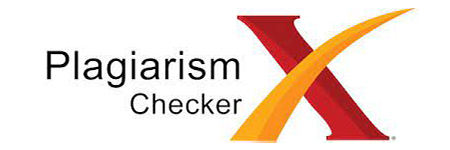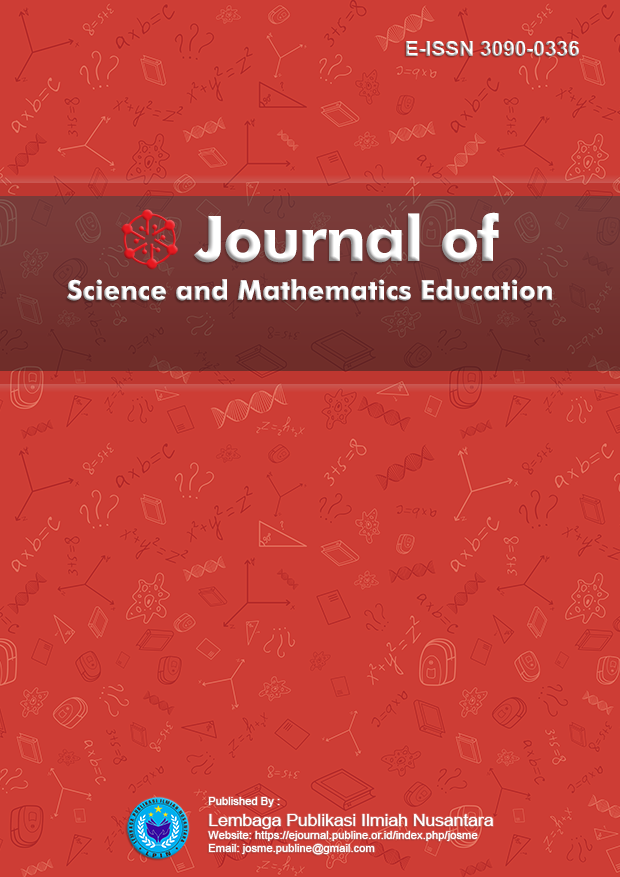The Implementation Of Lesson Study To Improve The Teaching Quality Of Science And Mathematics Teachers at Secondary Schools Dato' Syed Ahmad
DOI:
https://doi.org/10.70716/josme.v1i3.243Keywords:
Lesson Study, Teaching Quality, Science Education, Mathematics Education, Secondary SchoolsAbstract
This study explores the implementation of Lesson Study as a professional development approach aimed at enhancing the teaching quality of Science and Mathematics teachers at Secondary Schools Dato' Syed Ahmad. The Lesson Study model involves a cyclical process of collaborative planning, classroom observation, and reflective discussion among teachers. Through qualitative and quantitative methods, data were collected via interviews, classroom observations, and teaching performance assessments before and after the implementation. The findings indicate significant improvements in lesson planning, instructional strategies, and student engagement. Teachers reported that collaborative lesson planning allowed them to share diverse pedagogical insights and design more effective learning activities. Classroom observations revealed increased use of inquiry-based and student-centered approaches, particularly in conceptual topics. Furthermore, reflective sessions encouraged teachers to critically analyze their teaching practices and continuously refine their methods. This process cultivated a culture of collegiality and continuous improvement within the teaching staff. The study concludes that Lesson Study has a positive impact on the professional competencies of Science and Mathematics teachers, leading to better student outcomes and a more dynamic classroom environment. As a sustainable model, Lesson Study is recommended for broader implementation across Malaysian secondary schools to foster a culture of pedagogical excellence and reflective teaching practices.
Downloads
References
Ansawi, B., & Pang, V. (2017). The Relationship between Professional Learning Community and Lesson Study: A Case Study in Low Performing Schools in Sabah, Malaysia. Sains Humanika, 9(1-3). https://doi.org/10.11113/sh.v9n1-3.1144
Balang, N. J., et al. (2023). Practice of Lesson Study in Action Research: Improving The Quality of Teachers' Lessons. Proceeding International Conference on Lesson Study, 1(1), 245-259. https://doi.org/10.30587/icls.v1i1.6820
Fitriati, F., Rosli, R., & Iksan, Z. H. (2023). Enhancing Prospective Mathematics Teachers' Lesson Planning Skills Through Lesson Study Within School University Partnership Program. Journal on Mathematics Education, 14(1), 69–84. https://doi.org/10.22342/jme.v14i1.pp69-84
Hamna, H., & Ummah, M. K. (2022). Implementation of Lesson Study Based Collaborative Learning: Analysis of Improving Science Learning Achievement of Elementary School Students during Pandemic Covid-19. International Journal of Education and Curriculum Application, 5(2), 123-130. https://doi.org/10.31764/ijeca.v5i2.5763
Hasnah, A., Malek, M. A., & Aziz, N. A. A. (2023). Professional Learning Community (PLC): Lesson Study as Learning for Teachers. Journal of Learning and Educational Policy, 3(02), 6–13. https://doi.org/10.55529/jlep.32.6.13
Khotimah, R. P., & Masduki, M. (2017). Improving Teaching Quality and Problem Solving Ability Through Contextual Teaching and Learning in Differential Equations: A Lesson Study Approach. Journal of Research and Advances in Mathematics Education, 2(2), 103-114. https://doi.org/10.23917/jramathedu.v2i2.1791
Lau, S. P., et al. (2020). The Effectiveness Of Lesson Study On Differentiated Instruction Among Mathematics Head Panels In District Of Port Dickson. Postulat: Jurnal Inovasi Pendidikan Matematika, 1(2), 205-216. https://doi.org/10.30587/postulat.v1i2.2124
Lim, C. S., Mohamed, A. R., & Osman, S. (2014). Integrating Lesson Study into Pre-service Teacher Education: A Proposed Model of Learning to Teach in Real Context. Sains Humanika, 2(4). https://doi.org/10.11113/sh.v2n4.473
Winaryati, E., et al. (2023). Scientific Article "Lesson Study": Portrait of Improving the Teacher Learning Quality. Journal of Learning Improvement and Lesson Study, 4(1), 45-56. https://doi.org/10.24036/jlils.v4i1.87.
Lewis, C., Perry, R., & Murata, A. (2006). How should research contribute to instructional improvement? The case of lesson study. Educational Researcher, 35(3), 3–14. https://doi.org/10.3102/0013189X035003003.
Doig, B., & Groves, S. (2011). Japanese lesson study: Teacher professional development through communities of inquiry. Mathematics Teacher Education and Development, 13(1), 77–93.
Takahashi, A., & McDougal, T. (2016). Collaborative lesson research: Maximizing the impact of lesson study. ZDM – Mathematics Education, 48(4), 513–526. https://doi.org/10.1007/s11858-015-0752-x.
Dudley, P. (2013). Teacher learning in lesson study: What interaction-level discourse analysis revealed about how teachers utilized imagination, tacit knowledge, and modelling in the context of collaborative lesson planning. Teaching and Teacher Education, 34, 107–121. https://doi.org/10.1016/j.tate.2013.04.006.
Huang, R., & Shimizu, Y. (2016). Improving teaching, developing teachers and teacher developers, and linking theory and practice through lesson study in mathematics: An international perspective. ZDM – Mathematics Education, 48(4), 393–409. https://doi.org/10.1007/s11858-016-0795-7.
Cheng, E. C. K., & Yeung, A. S. (2020). Improving teachers’ professional learning through lesson study: The mediating role of self-efficacy. Educational Action Research, 28(2), 204–222. https://doi.org/10.1080/09650792.2019.1593871.
Murata, A. (2011). Introduction: Conceptual overview of lesson study. In Lesson study research and practice in mathematics education (pp. 1–12). Springer.
Xu, H., & Pedder, D. (2015). Lesson study: An international review of the research. International Journal of Lesson and Learning Studies, 4(4), 279–292. https://doi.org/10.1108/IJLLS-09-2014-0032.
Seleznyov, S. (2018). Lesson study: An exploration of its translation beyond Japan. Professional Development in Education, 44(3), 307–320. https://doi.org/10.1080/19415257.2017.1280522
Downloads
Published
How to Cite
Issue
Section
License
Copyright (c) 2025 Almira Nailal Humnah, Zakia Nor Rohmah

This work is licensed under a Creative Commons Attribution-ShareAlike 4.0 International License.











